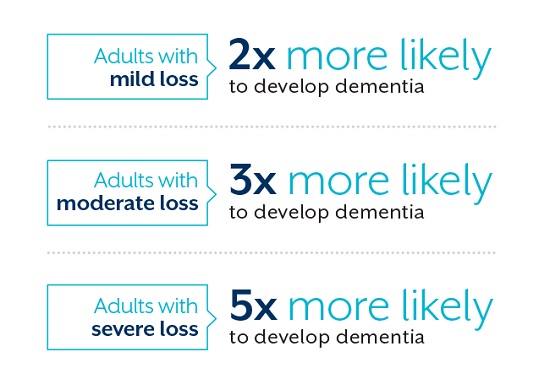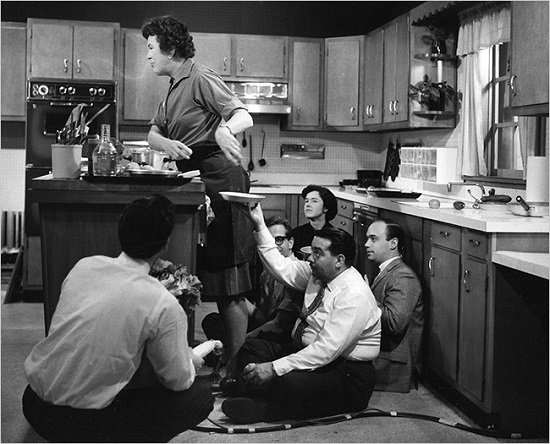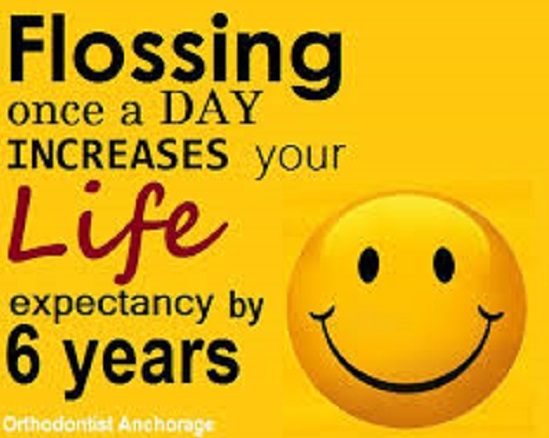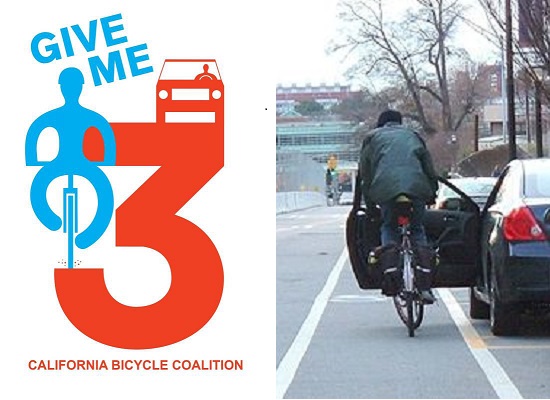Even if you eat in upscale restaurants in the U.S. or most other high-income countries, you normally are served meals with considerably more calories than you need. If you want to maintain a “Normal” BMI (Body Mass Index) you need to eat only a portion of the meal and take the rest home. It is even worse if you either (1) eat in downscale restaurants or (2) eat at fancy restaurants with 10-course “tasting menus. And if you eat enough to weigh 100 pounds or more too much you can expect to die 14 years younger than a person with normal BMI.
Category Archives: Health
Can Fixing Hearing Loss Prevent Dementia?
It is not surprising that a hearing aid company like Beltone would praise the value of improved hearing to reduce the likelihood of a person’s contracting Alzheimer’s disease and dementia. Beltone referred to a number of studies, which may have included the one by Johns Hopkins University School of Medicine and the National Institute on Aging.
Alzheimer’s Disease Drug Research Proceeds; Diabetes Drugs, Vitamin B1, and Flossing May Work
With millions of people affected by Alzheimer’s disease, there is a lot of interest by drug companies to come up with a cure. But that interest has thus far not translated into drugs that work. Two companies—Pfizer, Inc. and Axovant Sciences Ltd.—have recently exited the business, but others are continuing their research, and new ones are starting. Curiously, new research indicates that drugs used to treat diabetes may work for Alzheimer’s too … at least in mice.
The brain needs vitamin B1 (thiamine) to make acetylcholine as Alzheimer’s sufferers are deficient in it.
And another possible way to avoid, or at least delay, Alzheimer’s is to floss your teeth religiously.
Newspaper Recipes’ Claims of Brevity and Simplicity Can Shorten Your Life
Even famous cookbook author Julia Child needed help in the early days of cooking shows on television. So unless you have a personal food shopper with access to world-class farmers markets and a personal prep chef (the person who does all the slicing and dicing) there is no way that you can come close to turning out a gourmet meal in 30 minutes or less or getting a “weeknight” meal on your family’s table before your family perishes of hunger. Some men enjoy cooking as a relaxing analog counterpoint to their stressful digital days, but it is not fair to them to make them salivate over recipes from professional chefs who DO have prep chefs and MAY have assistants rounding up the ingredients (or perhaps they personally do the shopping but don’t count that in the short time claimed in the recipes).
A particularly egregious example appeared in the May 6 Wall Street Journal, promising a meager 20-minute stint. We were immediately suspicious when we noted that there were 12 ingredients (not counting the Parmesan cheese, a critical addition that makes most every pasta dish tasty). We have a pretty decent farmers market, but none of the sellers had any garlic “scapes” (none of them had even HEARD of these scapes). To be fair, the chef-author mentioned that he would omit the scapes because of his kids, but readers could substitute scallions (AKA green onions), ramps (equally arcane and probably at least as unavailable as scapes), or plain old dependable garlic (maybe his kids are used to that). Beyond this, the capers (not a common household item) needed to be rinsed and chopped, a fussy and time-consuming task.
The bottom line: 40 minutes would be a lot more accurate. And doubling the time might be a good rule-of-thumb when you see recipes that promise fast gourmet meals.
To Floss or Not To Floss, That Is the Question
While there is little proof that flossing your teeth daily prevents gum disease and cavities, there still may be an important benefit in helping keep Alzheimer’s Disease at bay.
And no less a person than Atari founder Nolan Bushell brought together a team of scientists to create a set of “Anti-Aging Games” that are designed to stimulate the brains of healthy people to help reduce the risk of early memory loss. Included in the dozen recommendations is “Don’t forgt to floss”. Actually, Anti-Aging Games is only one of several alternatives that purport to keep one young by training their brains. Another is Lumosity, which is not uniformly respected. In fact, we are surprised that Public Radio accepts them as an advertiser, though it does have to have sponsorship to stay in business.
Taller Men May be Happier … But Shorter Men Live Longer
According to a number of research studies, including one conducted at Stanford University, men often exaggerate their height and strength. We ran across this after reading a couple of Lee Child’s novels, whose hero is six-foot-five Jack Reacher, that have been made into movies starring five-foot-seven (or five-foot-eight) Tom Cruise. Personally, we have a lot more issues with what Hollywood has done to the plots than the differences in sizes of the fictious hero and the movie one, because Tom Cruise has a lot of derring-do and his own attitude (plus a lot of acting skill) that comes through loud and clear.
Shorter men may not be as happy as their taller male friends or idols, but research studies in Hawaii among Japanese-American men and in San Diego among American veterans has shown that they live longer.
Music Training May Increase Longevity … and Hearing
It may be that “Music hath charms to soothe the savage beast”, but it also may reward musicians with longer lives and better hearing, depending on when and how long those musicians were engaged in music training. Northwestern University’s Auditory Neuroscience Laboratory has studied how music affects the human brain for some years, and released their latest study in late 2011.
These results have not apparently led to a big increase in sales of instruments nor music lessons during the last five years, but should have been motivating, or at least interesting to those who contemplate their own mortality. But there are some caveats. Apparently it is best if one has learned music in childhood and continued to play an instrument for at least 10 years, even if there has been a gap of several decades between then and when s/he starts to play again. Another caveat is that the modest number of research studies, none with sample sizes exceeding 100, may not be statistically significant.
On the positive side, however, a musician’s being able to pick out other musicians’ notes helps him/her hear better because of being able to hear a conversation in a noisy environment. Better hearing means that one is less isolated from society, which helps one age more gracefully. And musical activity improves memory, again a defense against aging.
Most of the research focuses on instrumentalists, but an elusive Harvard/Yale study found that vocalists benefit similarly, apparently even more so if they sing with a group.
One simple aspect that seems to have been mostly ignored is the cardiovascular exercise that accompanies musical efforts. This has been most noted in the case of conductors, but some instrumentalists like drummers and all members of marching bands get considerable exercise.
In Praise of “A Long Bright Future”, by Dr. Laura Carstensen
Our highest praise for a book is to say, “I wish I had written a book that good.” This is such a book. You get a lot for your money, because it is so densely filled with both verifiable scientific facts and advice to increase the quantity and quality of one’s own life. An optimistic tone pervades the whole book, though Dr. Carstensen—Founding Director of the Stanford Center on Longevity—spends a whole chapter on “What Might Go Wrong?” She includes an extensive bibliography (called Notes) with numerous ideas—both from her and from others—skillfully woven into the basic fabric. Here are a few. Having more education is the most important factor in ensuring longer lives, and it likely delays the onset of dementia. Bilingual people may have a lower incidence of dementia. Financial problems (which can lower quality of life) in later life can result from the mistaken belief that one needs less money as one ages. Among the most significant health problems as one ages are arthritis, hearing, and obesity, with future obesity levels’ threatening to undo most of the recent advances in health.
Of greatest interest to our TechnologyBloopers persona is our observation that in the few short years between the book’s first copyright in 2009 and today (2016), many technologies have emerged or changed dramatically. Unfortunately, some of them may have progressed so far that older people can be disenfranchised if they don’t know about them, if they don’t know how to use them (even if they ARE user-friendly), or if they don’t have children or grandchildren to show them how. Of course, some of the new Apps (“Applications”, i.e., software programs that run on mobile devices to accomplish certain functions) are far more used by teens than retirees, and may not have value to older people except for the most extreme of passive watchers or gossipers. But developments such as self-driving cars, which are only vaguely hinted about in the book, will allow older folks to avoid being isolated, so will be hugely important in the very near future.
Two Tips for Motorists to Prevent Deaths or Injuries to Cyclists
On September 20, the San Francisco-based radio station KCBS repeatedly broadcast a news item reminding listeners about the October 2014 law that motorists must allow at least three feet of space when passing bicyclists. The reporter mentioned that he had surveyed 10 motorists, and none of them had heard of this law. We cycle for exercise, luckily in Menlo Park and Atherton, which have relatively wide streets and little traffic. Many of the streets in Menlo Park have generous bike lanes, and although Atherton does not have bike lanes it has numerous signs indicating bike routes and has recently been painting signs on the pavement reminding motorists about bicycles. Many other cities in California are not so well-equipped, and in less-populated (especially hilly) areas with narrower roads there are no signs.
But even in populous areas with bike lanes or signs, cyclists are in danger from the right from parked motorists who open their doors suddenly. Fortunately for listeners to KQED (the local public radio station), on September 27 there was a mention of something called “Dutch Reach”, a simple movement in which a driver twists to the left (counterclockwise viewed from above) and opens his door with his right hand. This makes him/her able to easily see if a cyclist is nearby and likely to be hit by the door. In Holland, this maneuver is actually part of the test for new drivers, and most Dutch already have it in “muscle memory” so they do it automatically.
Drinking Too Much Water Can Kill Soldiers … or You
“Death in combat is understandable. Death during training should not be occurring.” The problem is drinking too much water in combination with having too little electrolytes. It is not clear how effective Gatorade and its ilk are. One alternative from the past is switchel, an old-fashioned drink used (mostly during haying season, the hottest time of summer) to prevent farmhands from over-hydrating. There are different recipes, but the one my grandmother recalled was a combination of water, vinegar, ginger, and honey (of course, coming from a family of beekeepers, the sweetener was honey) Its main purpose was to prevent illness from drinking too much water (called “water intoxication”); horses have to be prevented from the same thing. Part of the death/illness prevention came from the taste of the stuff; you had to be pretty thirsty to drink anything approaching too much.










